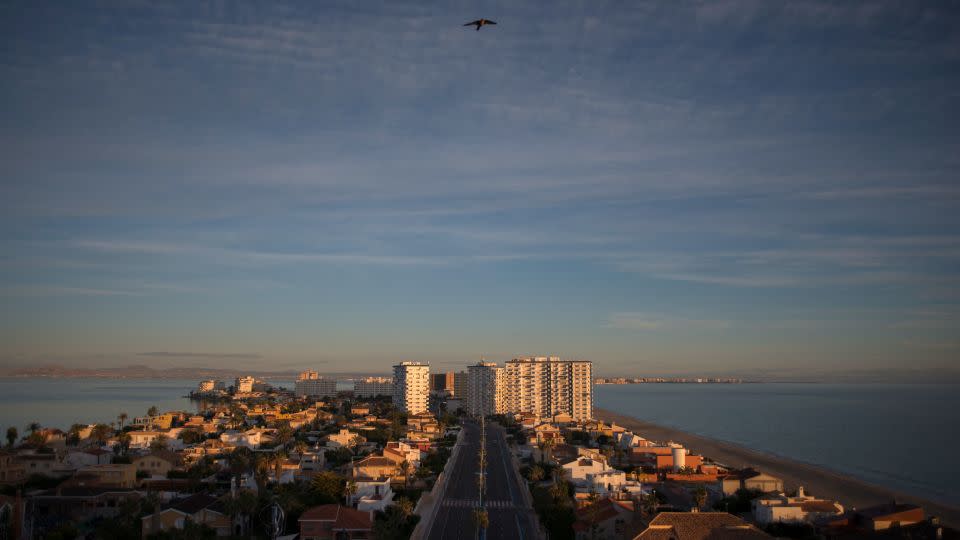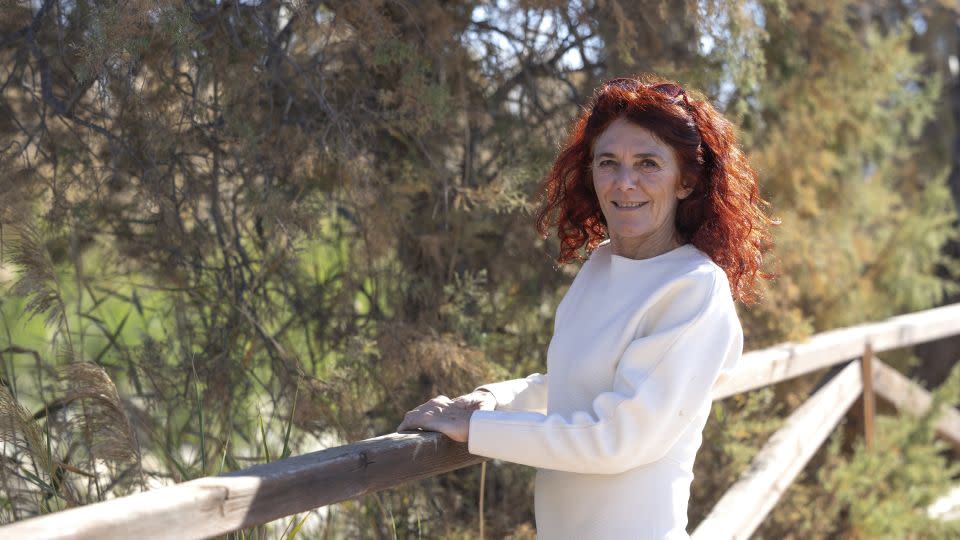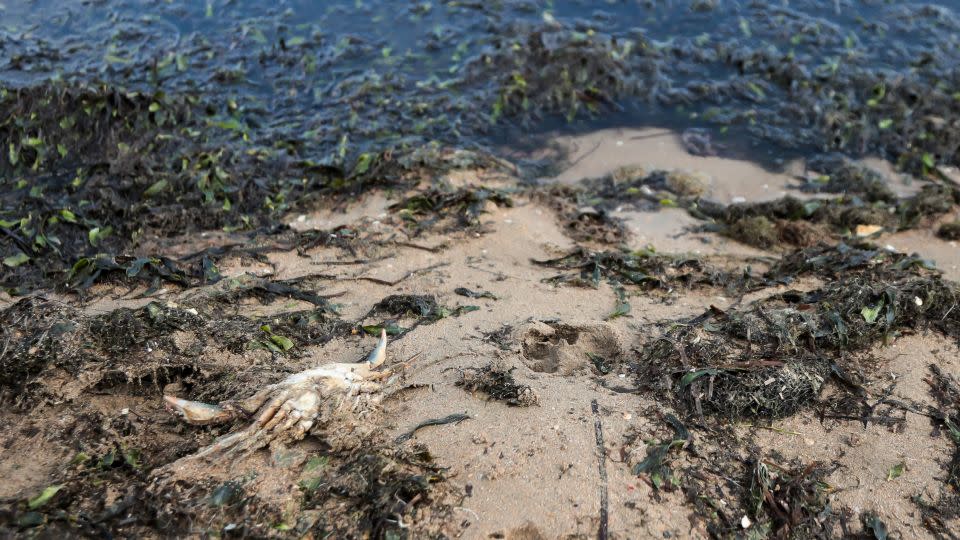This saltwater lagoon is legally a person. Here’s why that could help it survive
Editor’s Note: Call to Earth is a CNN editorial series committed to reporting on the environmental challenges facing our planet, together with the solutions. Rolex’s Perpetual Planet initiative has partnered with CNN to drive awareness and education around key sustainability issues and to inspire positive action.
Mar Menor, Europe’s biggest saltwater lagoon, sits on the coast of southeastern Spain. A strip of sand separates the 52-square-mile area from the Mediterranean, creating warm shallow waters and enticing beaches popular with tourists.
But in recent years these crystalline waters have turned murky with algal blooms, mounds of dead fish have washed up on its shores, and the once fresh and salty scent has been replaced by a foul stench of decay.
House prices in the area have fallen, tourist revenue dropped and local people were left furious. But one of them had a new idea to protect the lagoon: what if it was given the same legal rights as a person? What if it had a right to exist and protection against the damage being done to it?
Teresa Vicente, a professor of philosophy of law at the local University of Murcia, first asked these questions in 2019. Three years later, following an intense campaign, Mar Menor became the first ecosystem in Europe to be designated legal personhood rights.
Today, Vicente was awarded the prestigious Goldman Environmental Prize – an annual award given to six grassroots environmental leaders, each working in a different continent. Her legal strategy, which empowers citizens to act on behalf of nature, was commended for setting “an important precedent for democratizing environmental protection and expanding the role of civil society in support of environmental campaigns.”

Ecological disaster
Vicente, 61, was born and raised in the region of Murcia and her memories of the lagoon go all the way back to her childhood. She remembers playing there in shorts and t-shirts, parties on the beach during her teenage years, and the transparent water. “For me, the lagoon was everything,” she tells CNN.
But a few decades ago, things started changing. There was a development boom (today, the sandbank separating the lagoon from the ocean is filled with high-rise apartment buildings), an increase in plastic pollution, and a huge rise in intensive agriculture. In 1979, a new canal opened bringing irrigation to the region and helping to transform it into a farming powerhouse. Today, Murcia accounts for 20% of Spain’s fruit and vegetable exports, exporting more than 2.5 million tons a year, from lettuce and broccoli to lemons and artichokes.

Combined with waters warmed by climate change, this became a recipe for ecological disaster. Run-offs from nitrate-filled fertilizers entered the lagoon, causing extreme eutrophication – the accumulation of algae that depletes the water of oxygen. Since 2016, there have been three mass fish and crustacean die-offs, mussel populations have collapsed, and 85% of the lagoon’s seagrass died.
It was after the 2019 die-off, when an estimated three tons of dead fish washed up onto the shores, that Vicente was compelled into action. She had been on a three-month fellowship at the University of Reading’s Centre of Justice and Climate in the UK at the time, but her students in Murcia called her up and told her what was happening. “I immediately went back, because I wanted to start implementing the theory into law,” she says.
Right to exist
Granting “rights of nature” is a concept that has long been debated but has only gained momentum in recent years. In the last decade, ecosystems such as the Atrato River in Colombia and New Zealand’s Whanganui River have been granted legal personhood.

It was these examples that inspired Vicente to do the same for Mar Menor. She notes that, on paper, the lagoon was already protected by several international conventions: such as being classified as a Ramsar Wetland of International Importance and a Special Protection Area for Wild Birds. But none seemed to be protecting the lagoon from the severe pollution. “We knew that we needed to do something more than all these protections, something that goes beyond that,” she says.
She started to raise awareness of the campaign, writing an article for a local paper, and despite initial opposition she managed to win support from the riverbank communities who were enraged by the pollution on their doorstep. By 2021, Vicente had collected more than 600,000 signatures, more than she needed to propose the bill. Public demonstrations, meetings with government representatives and media interviews followed, until in September 2022, Spain’s senate passed it into law.
Less than two years after the legislation, Mar Menor has not miraculously recovered. The process will take time, but now the lagoon has the right to conservation, protection and remediation of environmental damage. Vicente explains that three new legislative bodies, composed of government representatives, scientists, and local citizens, have been appointed to oversee enforcement, and while the lagoon may not be able to speak for itself, any citizen is now able to file a lawsuit on behalf of Mar Menor.
Vicente is confident that the new model for justice will help to “cut the poison” that is entering the lagoon, referring to the nitrates from intensive agriculture, and defend it from further harm. Then she hopes that nature-based solutions can start to restore the area.
“Right now, Mar Menor is in intensive care,” she says. “Maybe it won’t go back to the same as it was when I was younger, but at least it will have a life of dignity.”
For more CNN news and newsletters create an account at CNN.com

